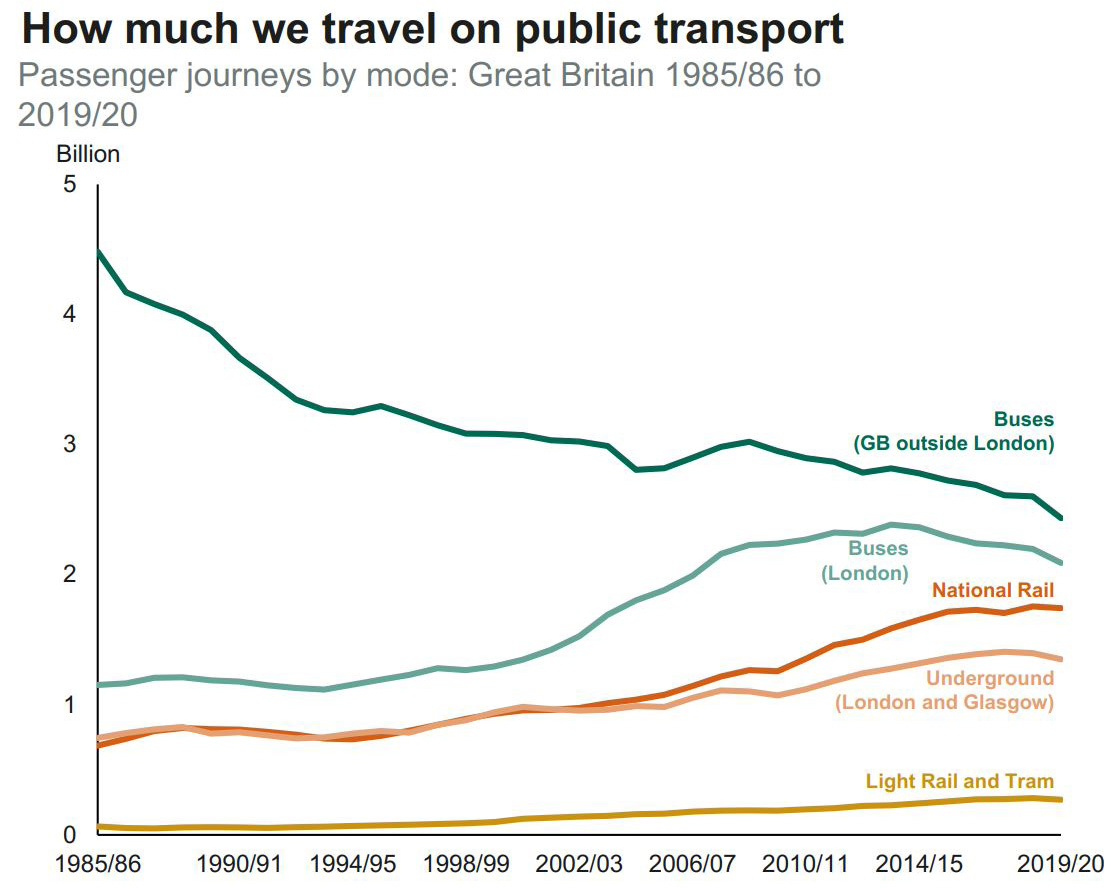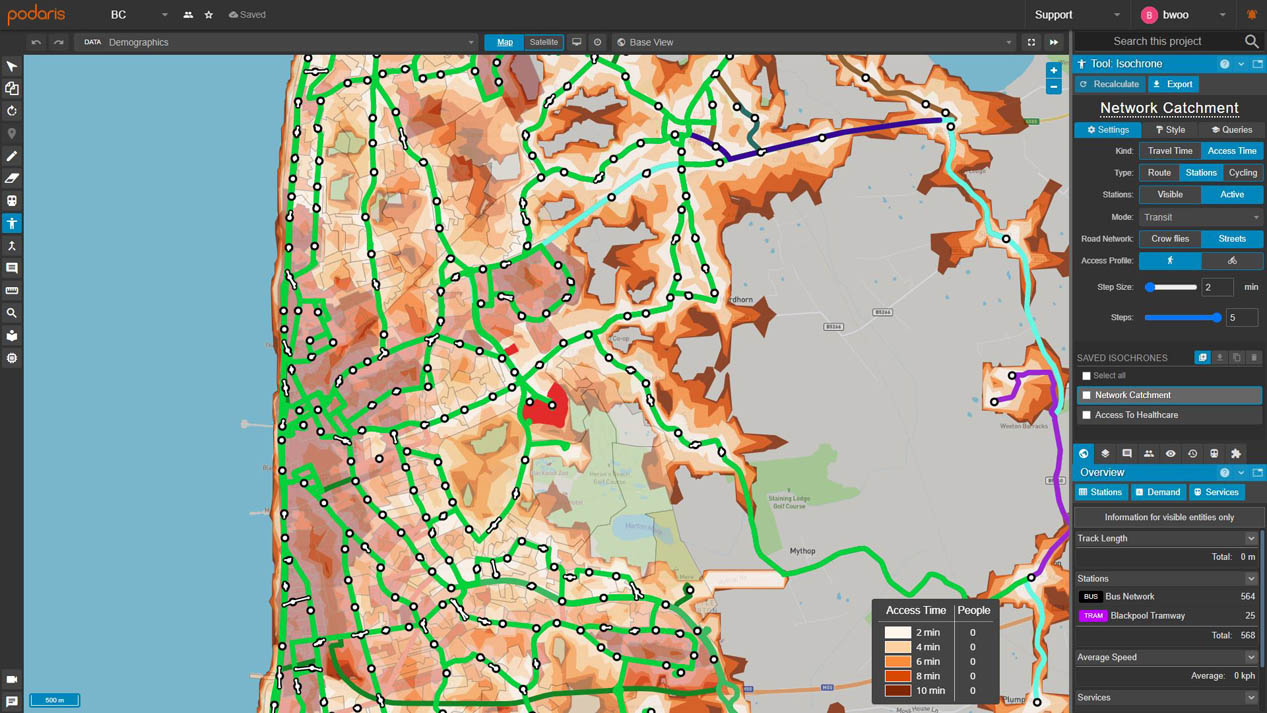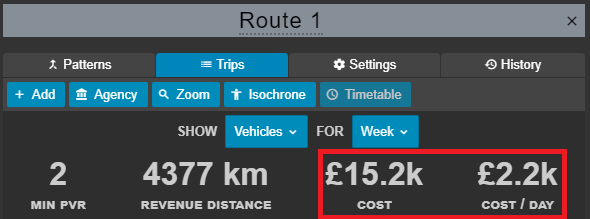In our first post on the UK's National Bus Strategy (NBS) this June, we outlined how the UK government proposes to reform the planning and delivery of bus services in England. In July, we spoke in more detail about how planners can put that into effect to meet its goals. In this article, we're going to look at the importance of creating bus services that integrate effectively with other transport modes, and discuss how to reflect these proposals in your Bus Service Improvement Plans (BSIPs). By the end of October 2021, the UK government expects that all LTAs will publish a local BSIP, detailing how they propose to use their powers to improve services. A key requirement for every BSIP is that they are created with the awareness that bus journeys do not happen in isolation, and instead form part of an “overall journey package that can include walking, cycling, park and ride or light rail”.
It acknowledges that well-connected bus and rail is already very much the standard in Europe, and points to Cornwall's 4 year ‘Superbus’ pilot programme as a forward thinking example of planning for modal integration within England. There, the county's rail line will serve as the ‘spine of the transport network’ with the new Superbus services aligned with it.
While journeys by National Rail continue to rise steadily, for bus services to remain well-integrated in the future, planners must stay cognizant of the impact and potential of emerging transport modes, from e-scooters to Personal Rapid Transit (which may be used in feeder systems). Therefore, in order for planners to respond with agility when understanding interactions with new transport modes, suitable planning tools which can accurately model those modes – and facilitate rapid collaboration with experts in those modes – will be essential.

How can digital tools help
From its inception, Podaris was developed to be capable of planning for a wide variety of transport modes. While it now has full support for the design of bus networks (with features such as automatic street following while creating routes), its fully customisable, multi-modal capabilities allow you to explore journeys in a wider context.
Positioning bus travel as both an “integral and attractive” part of a journey is central to the National Bus Strategy. This means creating services that are well connected, with minimal wait times for passengers making transfers. Podaris’ journey planning tools help you to understand how journeys are made across the networks in your region, which transport routes are available to connect travellers between their origin and destination, and the wait and walk times associated with navigating those routes.

This helps you better understand the relationship between your bus services and other transport modes. Journeys can be constructed with either average or timetable-based wait times, assisting planners in the design of bus routes that are timed to connect with trains (a key expectation of BSIPs).
Podaris’ extensive scheduling capabilities allow you to understand and redefine your service's timetables easily, better coordinating them to eliminate poor connections. More broadly, the NBS proposes increasing inter-bus transfers (as well as bus-rail interchange and integration). Podaris vastly accelerates the process of modelling the kinds of network improvements that facilitate better connectivity. As a rapid and agile tool for interdisciplinary collaboration, it allows multiple scenarios to be developed and compared with unprecedented ease.
As per the BSIP guidance, it can assist in the development of “hub models” that “connect services, with buses all arriving and departing at the hub town within the same window each hour, servicing the same centrally located bus or railway station”. Combined with sophisticated tools for geospatial analysis, it becomes trivial to explore the impact of these models on communities.
Connecting Places, Connecting Modes
Podaris is already being used in both urban and rural contexts, and its capabilities for exploring connectivity allow planners to fulfil the BSIP requirement that they maximise the connectivity of services that are necessarily regular but infrequent (such as those in rural areas). Despite being best suited to high-level strategic modelling, Podaris strives to preserve accuracy when producing outputs (including cost estimates), so you can be assured that your proposals are tenable. It enables you to quickly test and analyse mixed-mode fare strategies, such as the use of hopper fares, and compare them with single ticketing and zonal pricing through rapid, agent-based simulations.
The BSIP's ultimate ambition for ticketing is to provide ‘easy through ticketing between bus operators and other transport modes.’ Schemes like PlusBus already offer the kind of through ticketing solution that the government is keen to develop by expanding its coverage and moving from paper to e-tickets. Ultimately, technological solutions to ticketing that allow passengers to buy tickets for bus, rail and metro through a single smartphone app, will be key to optimising passenger experience.
Within Podaris, outputs such as cost estimations are generated automatically, allowing planners to design networks and services without concerning themselves with time-consuming manual processes, such as using spreadsheets to perform cost calculations. This helps you to create models that you can trust to support your BSIPs, and do so quickly, without the set-up time or installation associated with more traditional, offline tools.

As a mode-agnostic platform with an integrated stakeholder engagement application, Podaris is ideally suited as a site for “operators from different transport modes” to conduct engagement and address issues around the suitability of existing interchanges and timetables. It allows them to share and review live transport plans securely, leave pinned comments and generate feedback from curated stakeholders.
To see Podaris in action, and talk with us about how we can help officers and consultants develop Bus Service Improvement Plans, contact us to arrange a demo today.
If you'd like to find out more about how Podaris can support you in developing Bus Service Improvement Plans, please schedule a demo now!
You can catch up with parts I and II of our National Bus Strategy focused series here: